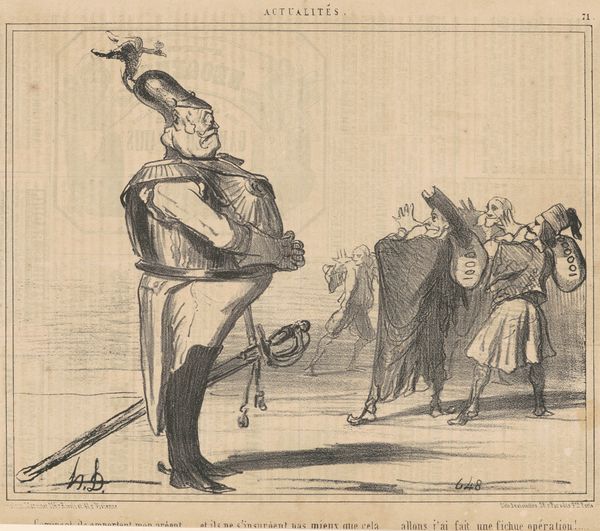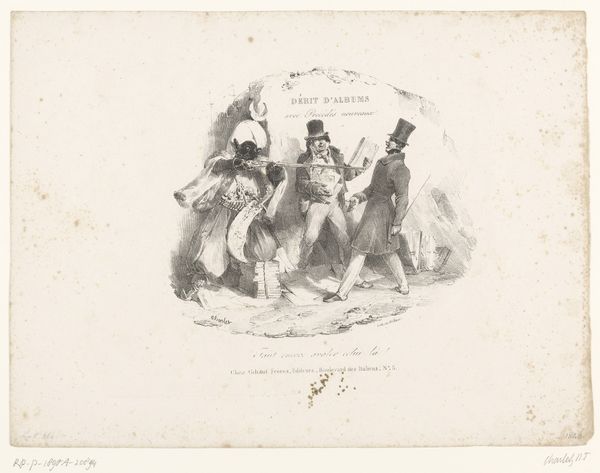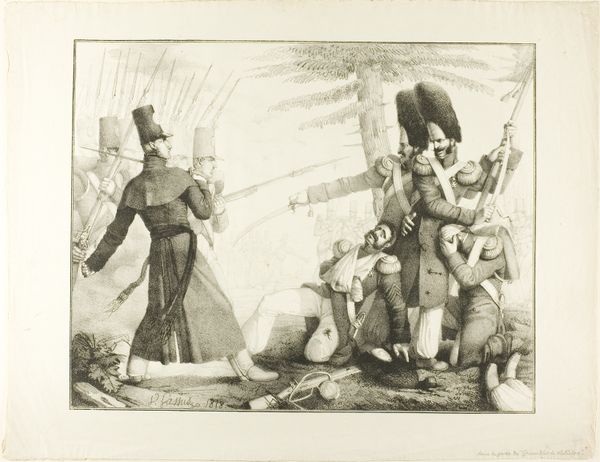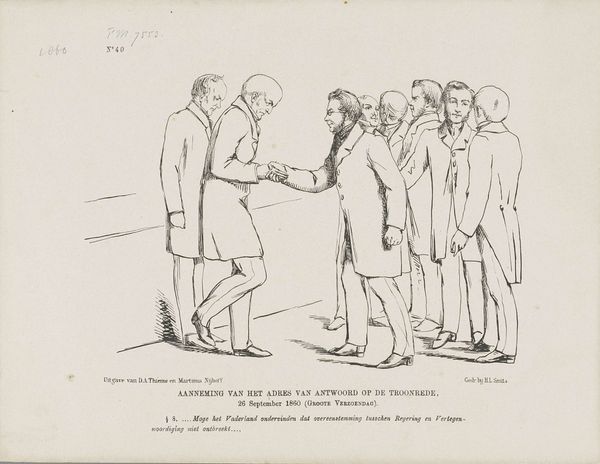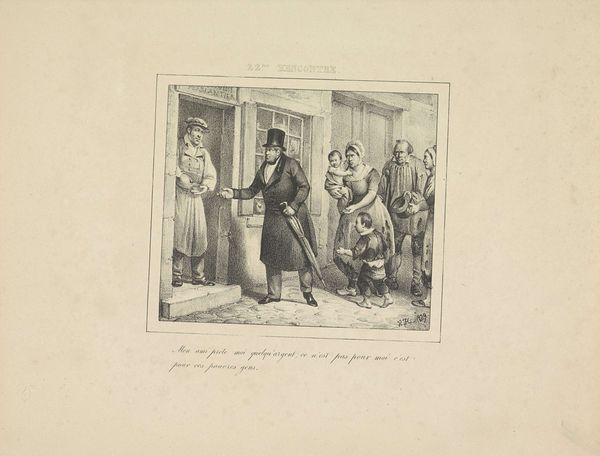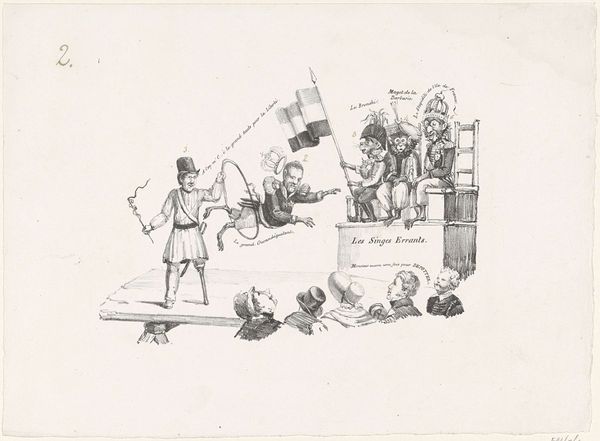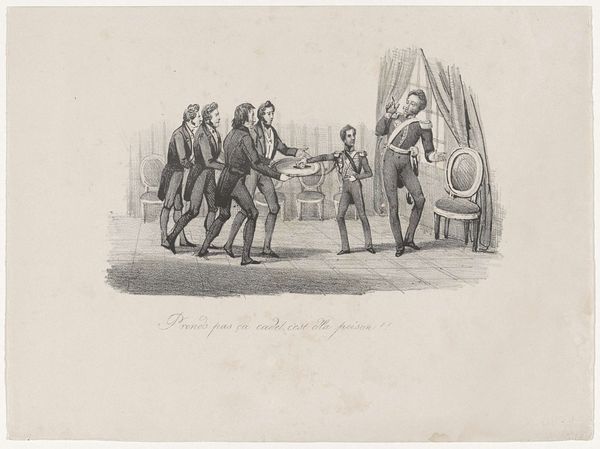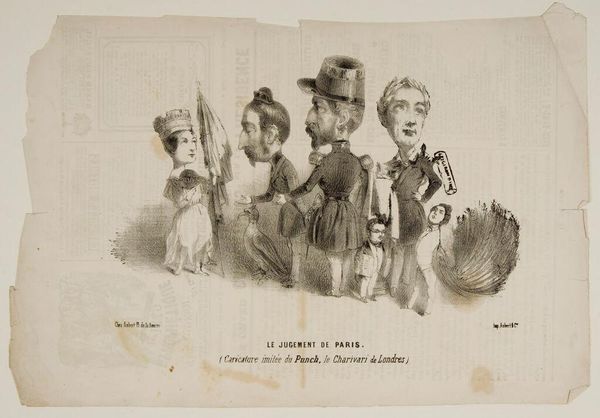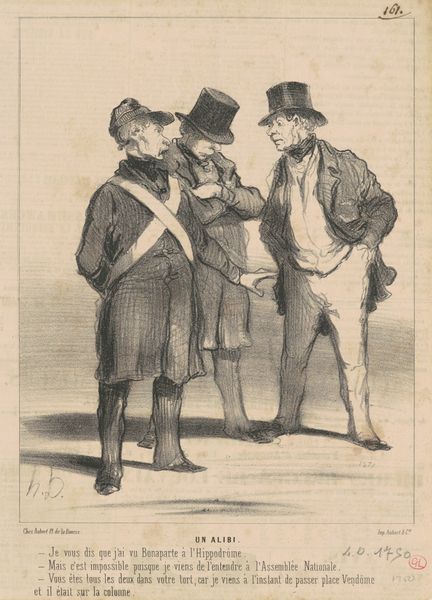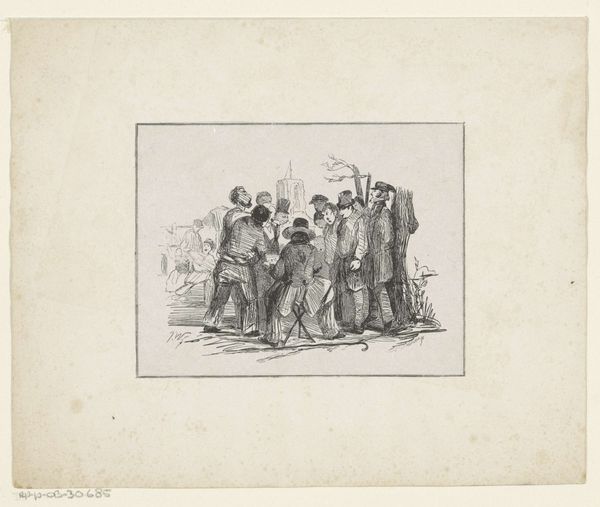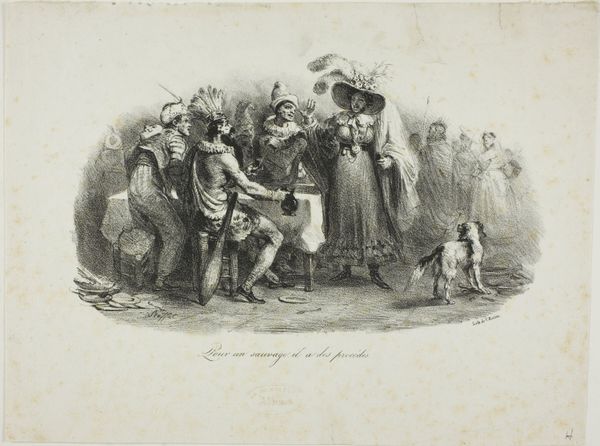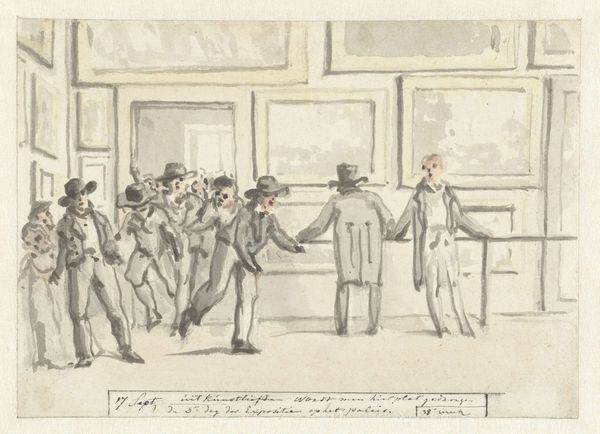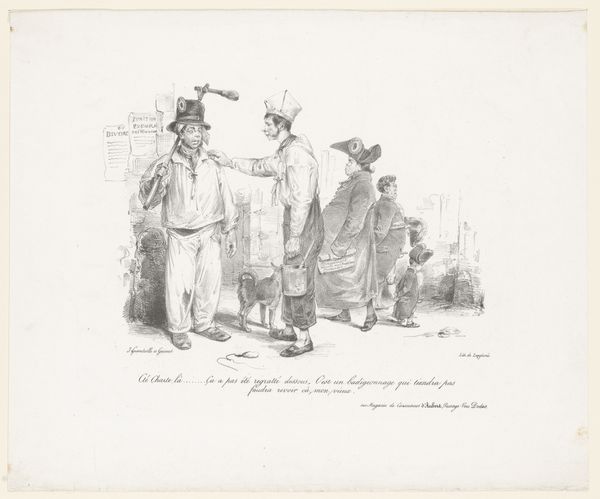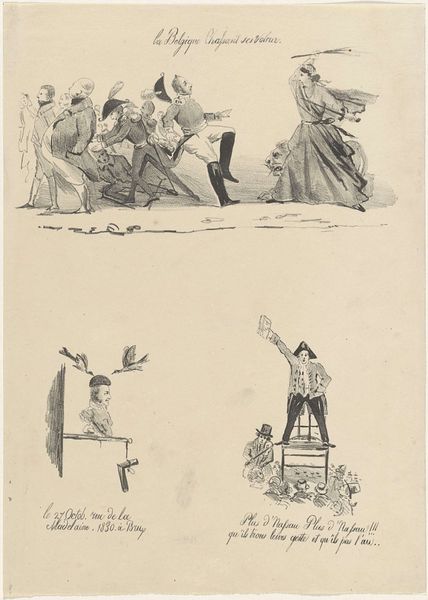
drawing, graphic-art, print, ink, pen
#
drawing
#
graphic-art
#
imaginative character sketch
#
quirky sketch
#
narrative-art
# print
#
caricature
#
personal sketchbook
#
ink
#
idea generation sketch
#
sketchwork
#
ink drawing experimentation
#
romanticism
#
pen-ink sketch
#
sketchbook drawing
#
pen
#
fantasy sketch
#
initial sketch
Dimensions: height 222 mm, width 285 mm
Copyright: Rijks Museum: Open Domain
This lithograph from 1830, titled “The Incurables,” was made by an anonymous artist in the Netherlands. It presents a scathing commentary on the political climate following the Belgian Revolution. Each figure represents a different European power and their perceived failures. The Dutchman clings to a document, desperately seeking support. He reaches out to France, but their representative offers empty words of encouragement, and directs him to the Ottoman Empire, whose figure is draped in luxurious furs and holds a scimitar, symbolizing the traditional enemy of Europe. The print reflects a sense of disillusionment with the established order, and can be seen as a progressive critique of the reactionary powers of the time. The imagery evokes a complex web of historical, political, and economic anxieties. To fully understand this work, we can look at pamphlets, newspapers, and diplomatic correspondence from the period. By studying these resources, we gain deeper insight into the artist's intentions, and the social context of the artwork.
Comments
No comments
Be the first to comment and join the conversation on the ultimate creative platform.
